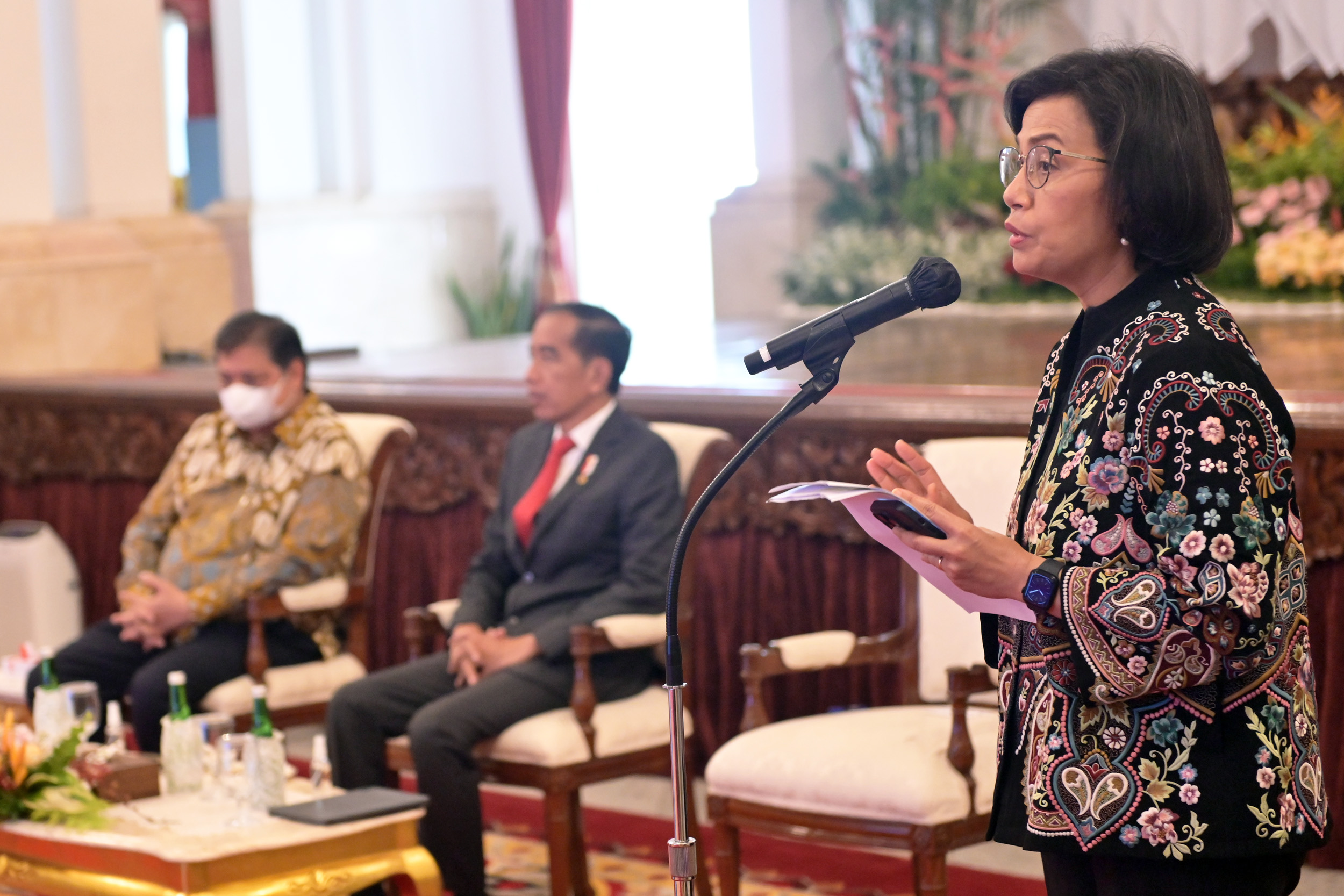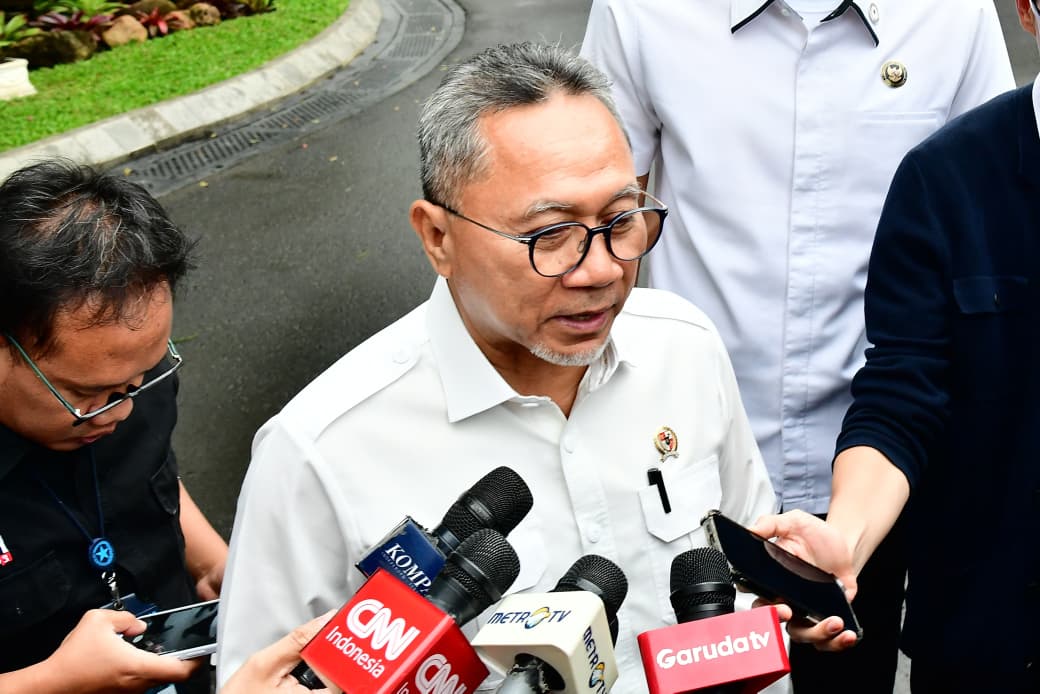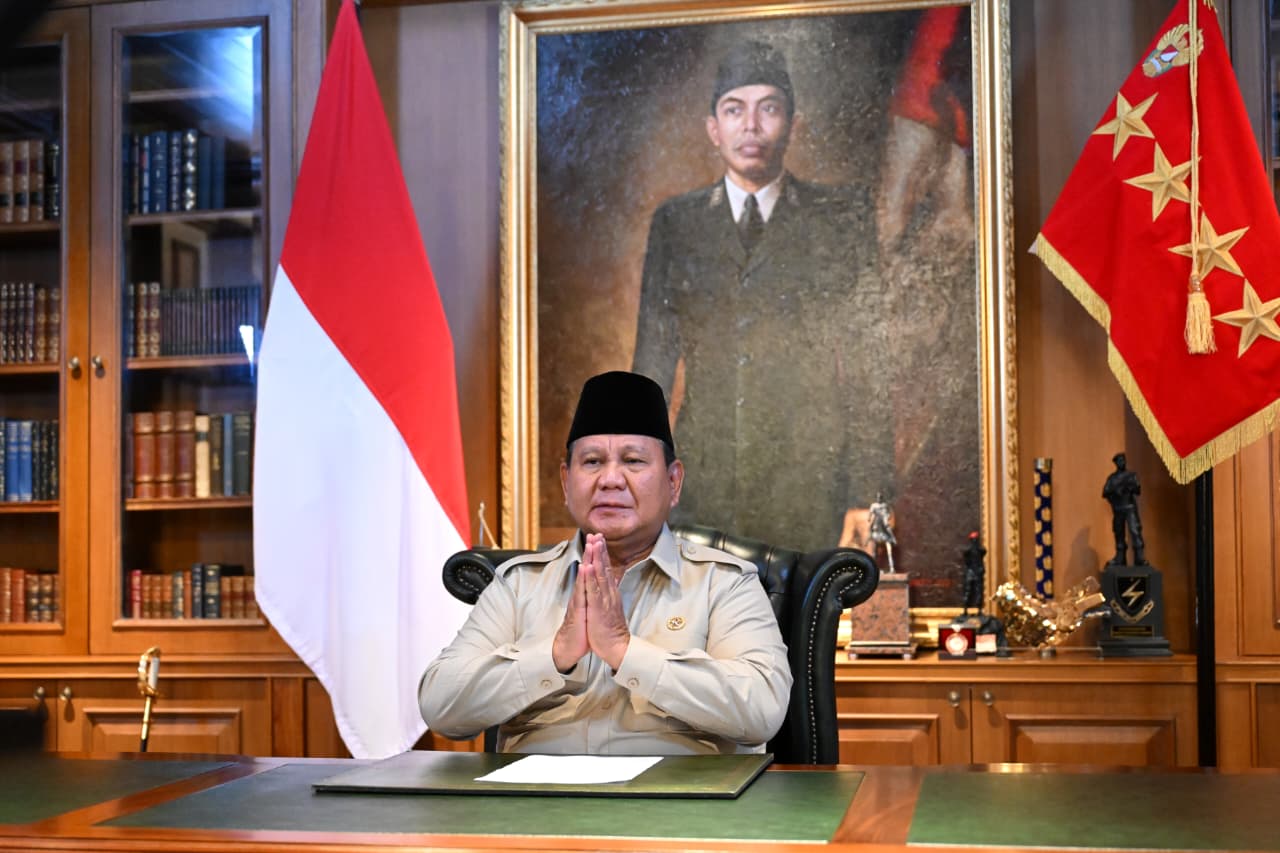Finance Minister Unveils State Budget’s Performance in National Economic Recovery

Minister of Finance Sri Mulyani submits Budget Implementation List (DIPA) and List of Budget Allocations to Regional Governments and Village Funds (TKDD) for 2023 Fiscal Year, on Thursday (12/01), at the State Palace, Jakarta. (Photo: PR Office of Cabinet Secretariat / Rahmat)
Minister of Finance Sri Mulyani Indrawati mentioned that the State Budget (APBN) has been working hard to stabilize national economy amid the challenges posed by the COVID-19 pandemic since 2020.
“Indonesia alhamdulillah has handled the pandemic and has mitigated the impacts very well compared to other countries. In this case, APBN has been an incredibly important instrument,” Minister of Finance said during the Submission of Budget Implementation List (DIPA) and List of Budget Allocations to Regional Governments and Village Funds (TKDD) for 2023 Fiscal Year, at the State Palace, Jakarta, on Thursday (12/01).
In 2020, APBN expenditure reached Rp2,595.5 trillion with a soaring deficit that reached Rp947.7 trillion due to the pandemic. Then, in 2021, APBN expenditure increased to Rp2,786.4 trillion but with a plummeting deficit of Rp775.1 trillion. The plummeting deficit, Sri Mulyani said, has indicated that COVID-19 pandemic was under control and that Indonesian economy started to recover.
“In 2022, we will make spending of Rp3,106.4 trillion, and deficit is estimated to lower to Rp 598 trillion. It demonstrates the last three years, we have succeeded in controlling the COVID-19 pandemic, protecting the paople and the economy, and APBN has been recovered gradually,” she explained.
The Minister also revealed that Indonesin national economy is currently in a positive trend of recovery which shows a quite significant growth at above 5 percent in the last five quarters in a row. This trend is also confirmed by various economic indicators such as inflation rate, balance of trade, and Indonesian Manufacture Purchasing Managers’ Index (PMI).
“Inflation in Indonesia has been moderately relative compared to other countries at the level of 5.71 percent in October, lowering from 5.99 in September. On the other side, balance of trade has recorded a surplus during 30 months in a row and a PMI index that keeps showing an expansion in the last 14 months,” she elaborated.
On the occassion, the Finance Minister expressed her appreciation to the House of Representatives and the Regional Representative Council that have lent their support in formulating the APBN policy and response during the difficult situation caused by the COVID-19 pandemic and global economic turmoil.
“It has made the APBN become responsive, timely, and flexible, but still effective and accountable in facing an enormous challenge of the pandemic and its consequences, as well as in monitoring and accelerating a very complex economic recovery process, and in facing new challenging global economic turmoils,” she affirmed. (DND/UN)(AW/MMB)








